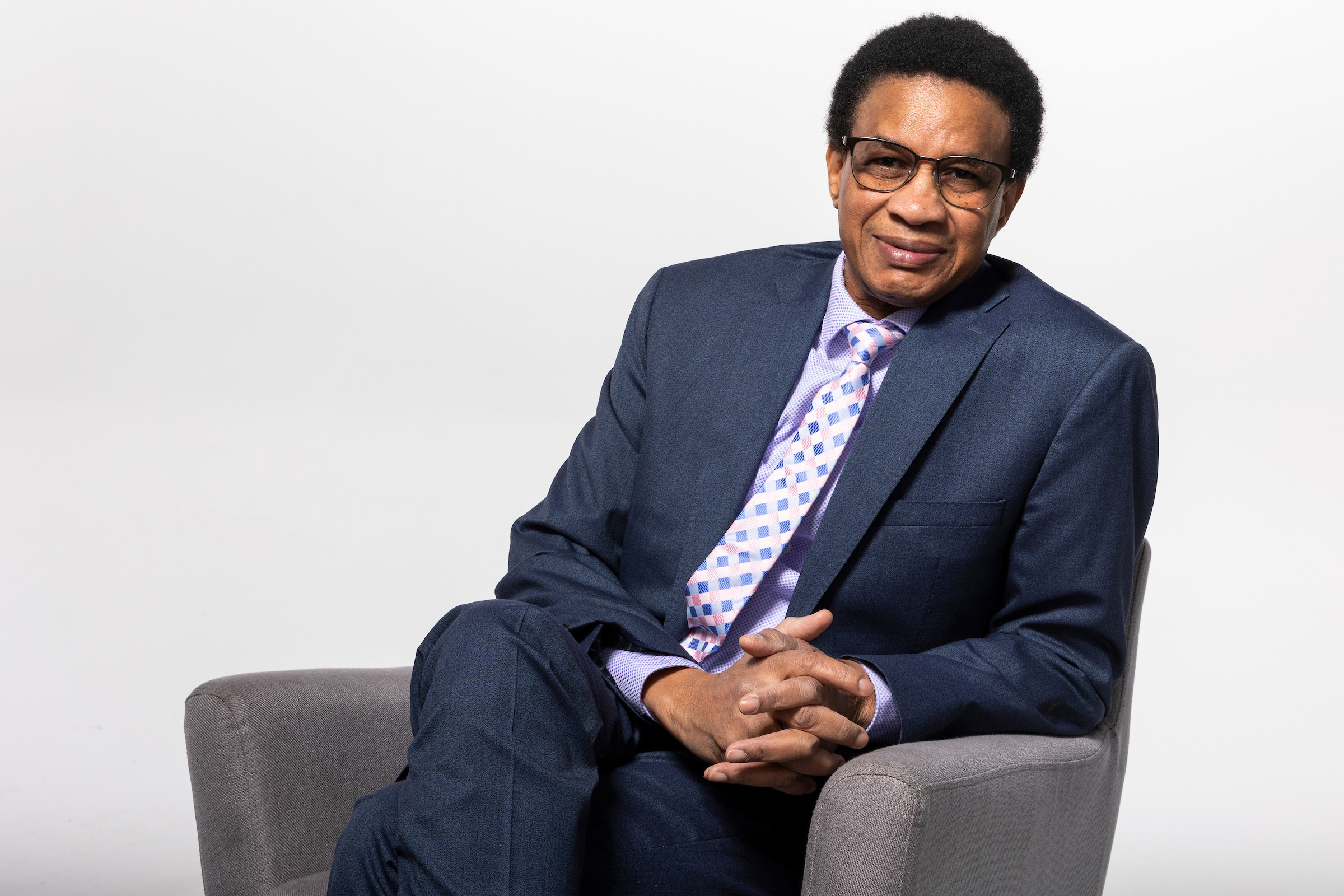As told by Andrew Jensen
I often work with students from Africa and help them understand how the university works. I am very grateful for my time at UVU.

Photo by Gabriel Mayberry
I was born in the northern part of Nigeria into a family that practiced a very traditional form of Islam. My family produced the religious leaders for the community, and, from the time I was young, I studied day and night to become a clergyman. At 4 o’clock every morning I would wake up and go to the mosque and then bounce from religious school to academic school until 11:30 at night, when I would go to sleep, and do it all over again. This routine — mosque, religious school, boarding school, mosque, night school — repeated for seven days a week, only having one break a week for Friday prayer. Despite the intensity of the schedule, I had become an expert in this routine by the time I was 5 years old.
As a teenager, my father sent me to Islamic fundamentalist school in Syria where I studied the religion in depth. During my studies, I often tried to put myself in the shoes of nonbelievers so that when I was a clergyman, I would be able to answer difficult questions. As a result, I asked a lot of critical questions, and because of that I was sent home.
I later moved to Egypt to pursue a master’s in Islamic geology, and it was then that I was introduced to the Christian faith. From the time I was young, I had been taught to despise Christianity, yet I had become interested in the religion. Despite my lifelong training to become an Islamic clergyman, I joined a Christian denomination.
My family disowned me and turned me in to the police, where I was arrested and sentenced to life in prison. Life behind bars was both relentless and very difficult. The conditions were inhumane, and there were staggering amounts of abuse. Throughout my time in prison, I had three strokes, congestive heart failure, diabetes, and experienced a myriad of other sicknesses along with extreme hunger. I was a victim of these intense conditions for 15 years.
At the end of the 15 years, I attended my court trial and the judge told me that I needed to pay 100,000 Egyptian pounds ($27,000) or my prison sentence would be extended anywhere from three months to five years. As one can imagine, I did not have that kind of money, and I explained my situation to the judge. After much deliberation, the judge told me that he would let me go back to my country under one condition: that I would tell all of my friends that if they did what I did, they would be sentenced to death. He threw out my case, and I was deported directly after.
Upon returning to Nigeria, a group called Boko Haram had started attacking innocent people in an effort to suppress the westernization of the area. In an effort to save my life, I moved to Ghana and started working with the judge of England in the prison ministry. This soon became my passion, and I worked to start a ministry of my very own. Later, I found out that a local religious leader was looking for me and wanted to know more about the ministry I was starting. He connected me to an organization called Engage Now Africa, where I worked with religious missionaries to help families with food, education, business, and other needs.
Working with members of the Engage Now Africa Organization, I wrote a book about my life titled My Name Used to be Muhammad. While working on the book, I took several trips to the United States and eventually decided to stay in the country. I moved into my apartment on a Saturday night and went to church Sunday morning and was invited to Sunday dinner by a man who was a friend of a friend. Throughout dinner that evening, I could not figure out who this man was. On Monday morning, I took a tour of Utah Valley University and started to see that man’s face all around campus — and it finally hit me that the man was Matthew Holland, president of the university. I ended up applying to UVU and was accepted.
UVU has so many resources for students to succeed. When I first started my degree, I was awarded a foundation scholarship that assisted me in pursuing my education. The system of engaged learning is fantastic, and students have so many opportunities to succeed. I also appreciate the diversity among students, and I often work with students from Africa and help them understand how the university works. I am very grateful for my time at UVU.